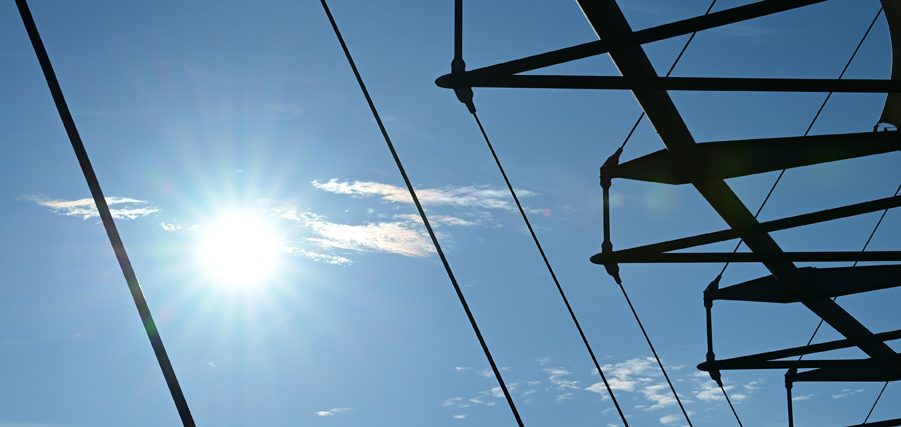
Club
26.01.23
HSV and Shell agree on green electricity partnership
Since the beginning of this year, the club has been purchasing renewable electricity from Shell. Further measures to reduce CO₂ emissions are being examined.
HSV is continuously working on concepts and measures for ecological sustainability in the various business areas. A key goal is to avoid, reduce or compensate for CO₂ emissions and thus make an ever greater contribution to climate protection. In order to derive further avoidance, reduction and compensation measures, HSV is currently calculating its corporate and event carbon footprint.
In order to meet the diverse and extensive challenges in the coming years, which are primarily associated with the decarbonisation of the Volkspark Stadium and match operations, HSV entered into a multi-year partnership with Shell Deutschland GmbH last summer, in which the company's expertise in the field of applied ecological energy and mobility solutions will be brought to bear.
Within the energy partnership, HSV and Shell have now agreed on a supply for renewable electricity. This means that since the beginning of this year the club has been purchasing green electricity from Shell. This is electricity from renewable energies that comes exclusively from hydroelectric power plants in Norway and is certified with the RenewablePLUS quality seal.
The RenewablePLUS certificate guarantees that the electricity comes 100% from renewable energy sources such as solar, wind or hydroelectric power plants and that the operators are committed to investing further in the expansion and improvement of the efficiency of the plants. The electricity produced is documented by certificates of origin and compliance with the criteria is regularly monitored by TÜV Rheinland.
In addition to the agreed electricity supply, HSV is working with Shell to switch the refuelling of the team buses and other vehicles to the alternative and CO₂-reduced fuel Blue Diesel. Shell's Blue Diesel fuel can save at least 22% of CO₂ emissions* compared to fossil fuel.
For the future, in addition to the supply of green electricity and the alternative fuel, further measures around electric charging and the charging point infrastructure in the vicinity of the Volksparkstadion as well as in the area of the lighting systems of the HSV facilities are being examined.
HSV is aware that the partnership with Shell has so far also been accompanied by critical voices, as the company has stood for fossil energy for decades and the transformation path taken is viewed with corresponding scepticism by the public. However, the energy transition also requires a new form of cooperation: namely at all levels between politics, business and society as well as between new partners.
The HSV hopes that together we will succeed in overcoming this scepticism with openness, in dialogue and tangible examples such as those described here.
*Wheel-to-wheel CO₂ reduction based on the CO₂ values of the sustainability certificates of the biofuels used with 95.1 g CO₂/MJ as reference for fossil diesel and calculation according to the 38th BlmSchV.



